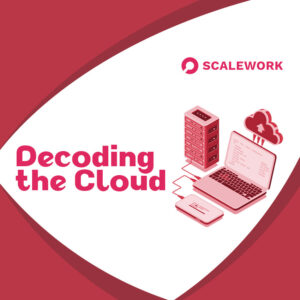Marketing has gone through massive disruption, because technology is changing our lives in terms of (worldwide) communication, and we can now use computers as they were humans. Are you aware, that user experience optimization, digital ad campaigns, sales forecasting and personalization play a key role in nowadays marketing?
Fill in the form to find out in what ways AI is transforming marketing right now and at the same time can transform your business big time. Ready for its disruption?
Transforming marketing in the 21st Century requires a new and cutting-edge approach to internet marketing. While traditional marketing techniques are still necessary, recent developments in Artificial Intelligent technologies mean that the days of “push button” or “delete” have long since passed. Companies must instead embrace the intelligence gleaned from their data-rich business models and use it to proactively craft marketing messages that engage their audience while also providing them with all the information they need to make the best decisions. Today’s internet savvy consumers are used to getting all the information they need quickly and efficiently. To that end businesses that want to succeed in transforming into true data-driven organizations should not overlook the value of using AI and data visualization tools to leverage the massive amount of data available through a combination of sensors, devices, and web analytics.

What is traditional marketing?
Any sort of marketing that is not done online is referred to as traditional marketing. Print, radio, direct mail, phone, and outdoor advertising such as billboards are all examples. This form of marketing is used in a variety of channels from newspapers to radio stations for connecting with their target audience. Traditional marketing is one of the most researched forms of marketing, as well as one of the oldest. This strategy is preferred by marketers since it is proven. Everyone encounters traditional marketing in their daily life, whether it is getting the mail or reading the newspaper.
Disadvantages of traditional marketing
Traditional marketing has had some success in the past but due to the boost in digitalization it now has significant drawbacks. Small enterprises can now advertise their products on websites and web pages through banners, social sites such as Facebook, WhatsApp, Twitter, or podcasts. In comparison to traditional marketing, these are less expensive measures. But let me share the reasons why traditional marketing is no longer enough to stay ahead of the game:
- Static text: Static text is commonly utilized for advertising in traditional marketing. For example, if you post an ad in the newspaper for your product and it sells out, you will be unable to amend your ad, resulting in many dissatisfied consumers. Plus, it makes interaction with your customer more difficult using this approach. However, with digital marketing you can rapidly update your webpage or easily while staying agile.
- Expensive compared to online marketing: Every time you plan to start a campaign, you must spend for placing advertisements in newspapers or distributing any leaflet or booklet. For instance, companies continue to pay a high price for traditional advertising – US$10.4 billion per year in the United States alone. Online marketing on the other hand does not necessitate any additional costs for website adjustments. This is something that your product’s sales team can readily accomplish. Traditional marketing businesses will charge you for each flier or mailer delivered.
- Provides less information: It is tough to present numerous pricing options and offers for a product by traditional marketing tools. The space available in print media is insufficient to present all the possible variations and offers that can appeal to purchasers. When it comes to online marketing you can provide your customers with a variety of options to entice them to acquire your goods.
How is AI transforming marketing?
Well, it is not just about how artificial intelligence is transforming marketing, it’s also about how technology is changing the way we live our lives. There are many exciting things happening in technology and the field of AI that could bring about major changes in our future. The internet has changed marketing in a big way as well as the way people communicate with each other.
Look at all the marketing programs available on the internet today. If you have ever googled the term AI, you will see countless hits. But what exactly does AI mean? The term artificial intelligence (AI) is a concept that refers to machines and computers that execute cognitive activities in the same way that humans do. In a nutshell, AI mimics the functioning of the human brain. Speech recognition, language translation, problem-solving, visual perception, and data analysis are just a few of them. AI refers to machines and humans that replicate human cognitive functions.

In what ways is artificial intelligence changing marketing?
In previous years, marketers were hesitant to employ artificial intelligence in their marketing strategies. However, many successful organizations have adopted with companies such as Amazon or Spotify using AI systems successfully. AI in digital marketing is now a reality, with a variety of advantages and options. Let’s look at how artificial intelligence can be used in digital marketing.
AI allows businesses and marketers to make use of computers as if they were human by using facial recognition, voice recognition, spell checkers or calculators. These types of software allow business owners to take advantage of the ability of computers to perform tasks that traditionally had to be performed by humans. For instance, a HR person can use the application called Dragon Naturally Speaking to conduct interviews, train sales staff, provide product samples, provide a text description of an item.
User Experience Optimization: For many businesses, a good user experience equates to having a visually appealing website. That’s what we’ve been told the audience wants! That’s why it’s so disheartening when a website’s bounce rate remains high and unable to generate nearly as many leads as we had hoped. Did you know, for instance, that 88 percent of users are less likely to return to a website after a negative user experience? or that 13% of customers are more likely tell 15 or more people about a negative experience? While a whopping 72 % will tell at least six people about a positive experience? One of the goals of AI is to improve the user experience. It can determine client desires and needs far faster than humans, as well as anticipate what they could do next. As a result, AI can assist you in customizing your content to gain a better knowledge of your customers’ behavior and motivations.
Sales forecasting: According to Gartner, over 90% of B2B business sales organizations will rely on intuition rather than smart data analytics by 2025, resulting in erroneous projections, sales pipelines, and quota achievement. Would you want your company to continue to suffer as a result of this? We don’t need to explain you to how crucial sales forecasting is for your organization based on the statistics. Getting accurate forecasting, on the other hand, is the name of the game. While fewer than 20% of sales organizations have forecast accuracy of 75% or greater, less than 50% of sales leaders and sellers have high confidence in their organization’s forecasting accuracy. Sales are driven by effective marketing, a statistic that is easier to foresee and understand thanks to AI. Marketers can use all the data obtained from inbound communication and compare it to standard KPIs to identify sales strategy changes and improvements. It can provide you forecasting of a metric’s results so you can decide whether r it is worth the investment. This can save marketers a lot of time and money in the long run, while also increasing sales and growth.
Digital advertising campaigns: Marketers today rely on digital platforms to deliver the most relevant advertising campaigns to customers at every stage of their journey, which isn’t surprising given that, according to Statista, internet users worldwide will spend an average of 145 minutes per day on social media in 2019 and 2020, up from 142 minutes the previous year. Yet many have yet to see the desired results. AI can make a big difference here. You will see considerably more effective digital advertising campaigns if you have built a thorough understanding of your consumer base. Many marketing professionals for instance consider Facebook advertising to be the most bang for your buck. 89 % of B2B marketers use the social media channel for brand marketing, according to stat. More so, with over 1.6 billion daily active users, Facebook is the world’s most popular social media platform. It only works, though, if you know who your target audience is. You will have all the data you need for more successful digital ads thanks to the amount of consumer data collected by websites, social media sites, and keyword searches.
Data-driven marketing
Marketers now have more data about their customers than ever before, and those who use this information to craft a data-driven strategy are the most successful Data-driven marketing is a type of marketing that gathers data from customers and third parties to develop a better understanding of their motivations, preferences, and behavior. Data-driven marketing helps businesses optimize their marketing channel performance and as a result, improve their customer experience resulting in increased revenue and profitability. However, it’s worth noting that 87% of marketers believe data is their company’s most underutilized asset. Irrespective of the above, 40% of corporations expects to boost their data-driven marketing budgets since companies who utilize data-driven tactics see five to eight times the return on investment as those that don’t.
Big data
Do you know that the big data industry is expected to be worth $77 billion by 2023, which is nearly 70% of Bill Gates’ personal worth? Yet most businesses can only analyse about 12% of their data, meaning 88 %t of data goes unanalysed. Big data is a term that defines the massive amount of organized and unstructured data that inundates a company daily. But it is not the quantity of data that matters. What matters is how corporations use data. Big data may be studied to uncover insights that lead to more informed judgments and strategic business movements. The term “big data” refers to data that is so massive, quick, or complicated that processing it, using traditional methods is difficult or even impossible. It has been a long time since big amounts of data were accessed and stored for analytics. However, in the early 2000s, industry analyst Doug Laney coined the now-standard definition of big data as the three Vs: volume, variety, and velocity.
Benefits of using big data in marketing.
It helps in gaining a better clarity of the targeted people. Marketers can obtain a razor-sharp grasp of their target audience by collecting any information about clients. CRM data for example, can help marketers forecast customer behaviour even more accurately.
So, what was the outcome? Marketing campaigns that ensure that the proper message is delivered to the right customers at the right time.
It uncovers the best channels of promotion. Not only may data show the preferences of a target audience. It could also recommend which channels a company should utilize now and, in the future to engage with their target audience.
As a result of this knowledge, they may be able to better position the message where its intended audience is located.
Personalization: Customers are becoming increasingly wary of generic marketing messages. While some customers may be irritated by brand content that has nothing to do with them, most customers will not look at or consider an offer unless it is tailored to their previous interactions. As a result, marketers must focus on personalizing customers’ experiences to engage them.

Data credit: Compass Magazine – Dassault Systems
A transformed marketing strategy can be used in a variety of ways to generate new businesses. There is a myriad of unique ways to target your audience, and the power of leveraging data and analytics to better understand your clients is incredible. By combining technology and statistics you can develop campaigns that are more efficient and cost-effective, and you will understand more about who buys your products or services. This will allow your business to reap all the rewards that a marketing system can bring.
One key piece of data that is often overlooked is customer recall. Using AI & data mining it is possible to find patterns and anomalies in purchasing behaviour. By understanding your customer’s habits, it is possible to create new offerings that satisfy their needs while also increasing profitability. For instance, if you identify that people living in a certain demographic are more likely to buy a particular product or service you can offer that product or service at an individual price point. It is also possible to personalize messages and create a brand presence that will convert better.
With new and innovative technologies like artificial intelligence, it is possible to create new forms of advertising. These programs can measure results and spot trends and anomalies in order to provide custom messages and new products for the market. It can help you innovate more and increase your business profits. Transforming marketing allows you to focus on doing what you do best: Running your business and to give your clients the services they value.
The big question is: Is your company and marketing team ready to embrace all these AI technologies to boost their profits?
Scalework can help kickstart your data-driven transformation journey!
Are you curious about the hype surrounding data-driven decision-making? Are you pondering whether it is a worthwhile investment? Or are you simply unsure where and how to begin the procedure for your business? We know that small and medium-sized companies often have no opportunity to make the right use of their existing data because they simply lack the knowledge. Therefore, we have developed the AI Masterclass. We want to help those companies that cannot afford a top agency, but still want to access the same knowledge.
With our AI Masterclass, we have created a place for you, where you can learn how to outperform your market by learning how to quadruple your revenue by getting the most out of your data. This even includes three coaching sessions, where we will help to solve your individual problems with leveraging data:
For more info watch our free webinar, where Ulrich Busch, CEO of Scalework, will teach you how to avoid 3 top mistakes that business leads often tap into when trying to capture value from their data. Let’s break the knot in leveraging your data together!
Our partners

Scalework

Follow us on LinkedIn: @Scalework
service@scalework.com
Scalework
@ Wayra Telefonica Kaufingerstr. 15
80331 München





